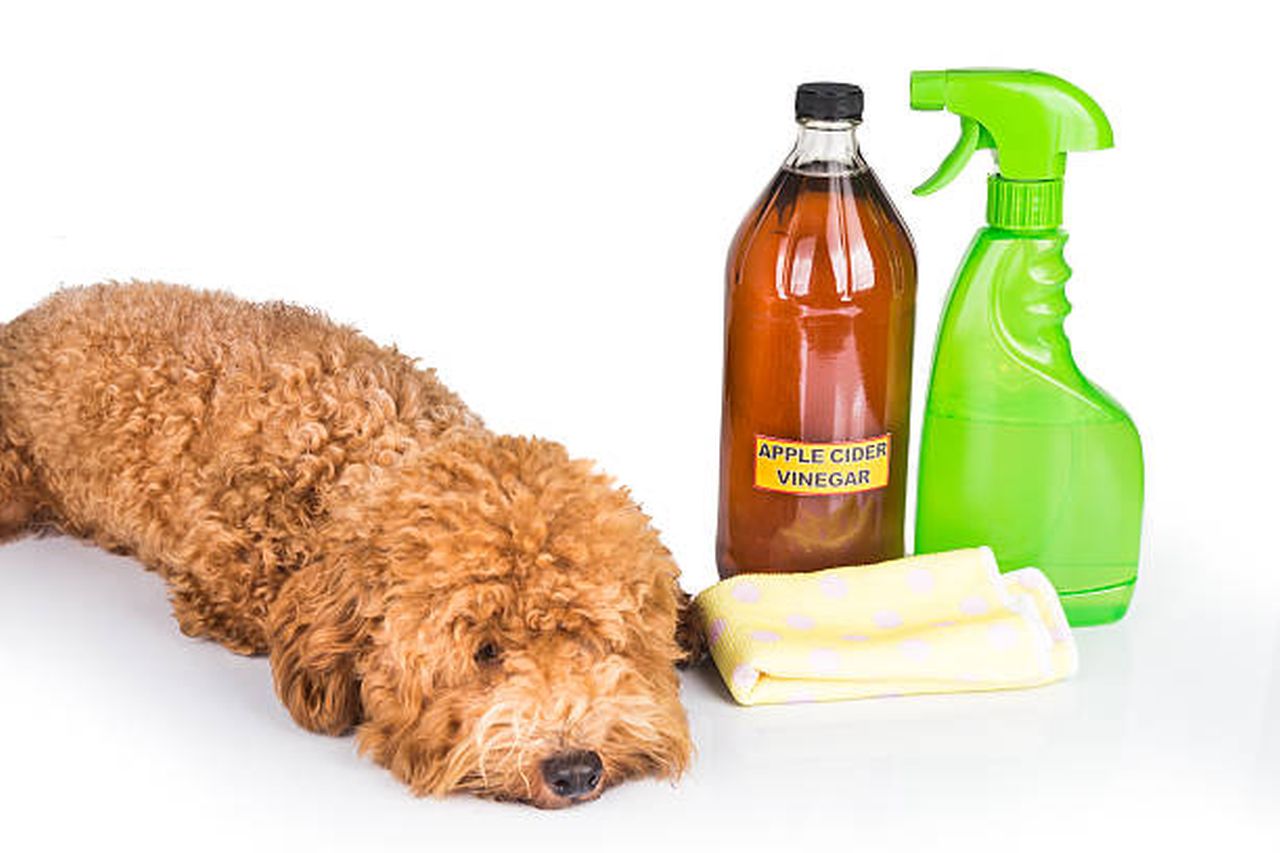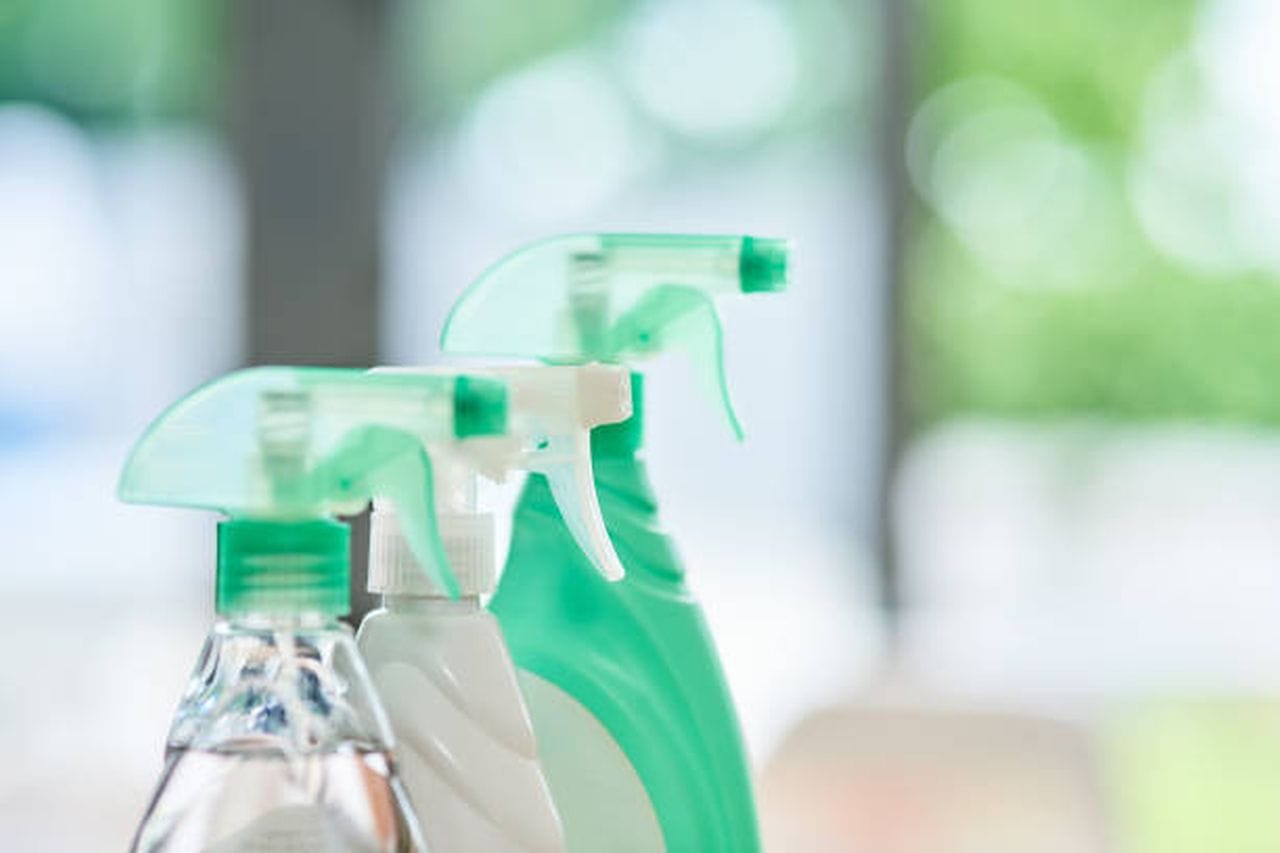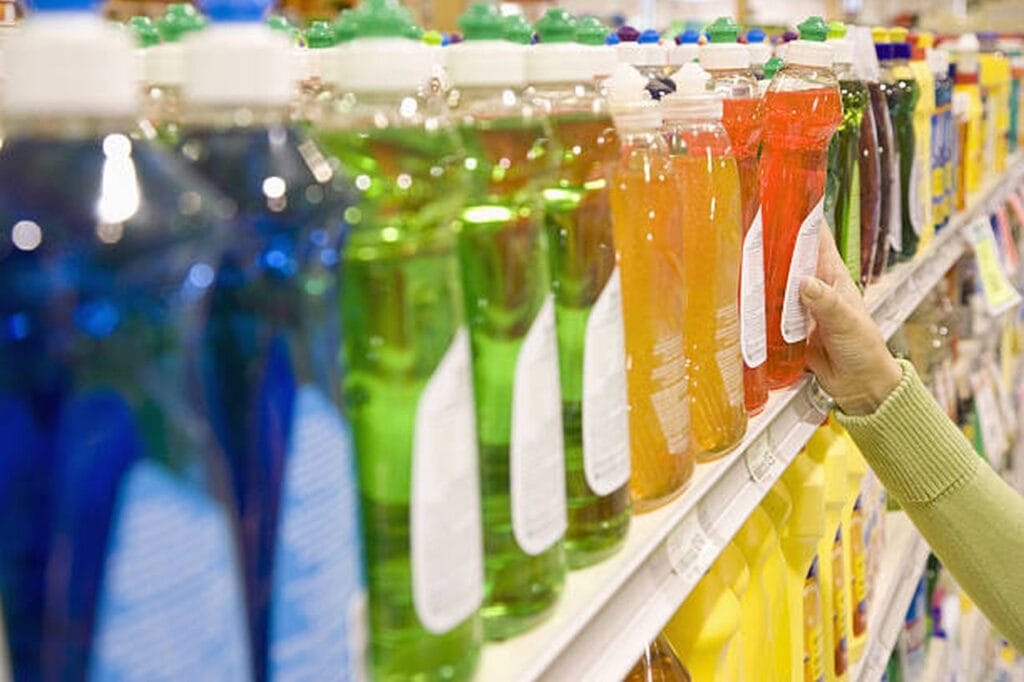Our pets are members of our families, and it is our responsibility to ensure their safety. Unfortunately, many things you would believe are safe for your pet to use around the house can make them sick.
If you want to keep your dogs safe, it's important to use only cleaning solutions that are appropriate for them and to put them away in a secure location. In this article, we'll discuss the potential dangers cleaning products provide to your pet, the supplies you'll need to prevent your pet from eating any of the toxic chemicals, and the finest pet-friendly cleaning solutions currently on the market.
Knowing How Dangerous Household Cleaners Can Be For Pets
Our pets' bare paw pads can absorb toxins on the floor because they are so close to the ground when they sleep, play, eat treats and bones, and lick the floor. Cats are another potential threat if left unattended liquid cleaning supplies are left out.
Knowledge of species-specific toxicity is crucial because what is harmless to a dog could be deadly to a cat or a bird. Awareness of the cleaning products and components that could harm your dog, cat, bird, reptile, or exotic pet is crucial.
Dogs
While dogs have a higher tolerance for most cleaning chemicals, some can still be dangerous. Bleach, formaldehyde, phenols, ammonia, and some essential oils should be avoided because they irritate the skin, lungs, and liver.
Cats
Because of their grooming habits, cats are more susceptible to the effects of several chemicals. They are hypersensitive to pyrethrins and other pesticides. Products with phenols should be avoided, as they are hazardous to cats. Essential oils like tea tree oil can poison cats if ingested or applied topically.
Birds
Birds' respiratory systems are extremely sensitive, making them particularly vulnerable to poisons in the air. Don't use anything with chlorine, bleach, or formaldehyde, as well as aerosol sprays, strong scents, or ammonia. Overheated Teflon and Nonstick cookware can produce toxic gases that can kill birds.
Reptiles
Chemical and odour sensitivities are also present in reptiles. In the vicinity of their enclosures, you should not use any items containing ammonia, phenols, chlorine, bleach, or strong perfumes.
Reasons Why Pet Owners Should Take Extra Care When Cleaning the Floor
Substances that are extremely toxic to dogs, cats, and other pets. Switching to a pet-safe floor cleaner made from non-toxic plants takes more time and money. Regarding chemical toxicity, animals are much more vulnerable than humans.
Your Pet Will Be Exposed To More Open Areas.
The floor in your home is in frequent contact with your pet's paws, fur, and skin because they are usually barefoot. Long periods of physical touch can cause skin irritation and rashes. Cleaning supplies that are safe for pets should always be used.
Animals Have A Habit Of Licking The Ground
Some lick the floor to find tasty remnants, while others do it out of curiosity. Because of the proximity, a responsible pet owner will choose a floor cleaner that is safe for pets.
Pets Are Smaller Than People
Many compounds are safe at low concentrations but can be fatal at higher ones. Chemicals affect dogs more than people since they are smaller. Small pets, including cats and dogs, are especially at risk from the chemicals in floor cleaners.
Animals Are Not The Same As People In Every Way.
Animals, including dogs and cats, have a much higher chemical sensitivity than humans. A substance that does not affect humans may be lethal to a wild animal. Pet-friendly floor cleaners create clean, chemical-free environments that make pets healthier and happier.
Choosing Cleaning Supplies That Are Safe For Your Pets
Pet owners can be assured that the substances in store-bought and homemade cleaning products are safe by taking a few precautions.
The first is developing "label literacy," or the ability to quickly scan a product label and identify any components that should be avoided in a home with pets based on your knowledge of which common ingredients are harmful.
It's best to keep pets away from cleaning products containing the following:
- Formaldehyde
- Chlorine Bleach
- Ammonia
- Alcohol, isopropyl
- Phenols are a caustic chemical that can cause damage to the lungs and skin if inhaled.
- Fragrance compounds (also known as phthalates)
- Pyrethrins (present in several insecticides and insect repellents)
Other essential oils should be avoided in homes with animals. If you're a pet owner, read this list carefully before attempting any homemade cleaning solutions. Many of these are found in candles, diffusers, and air fresheners, so take caution.
Avoid using any of the following essential oils around your pet:
- Lavender is toxic to cats but can be used in homes with dogs in the Cinnamon Citrous Lavender blend.
- Pine Pennyroyal
- White birch bark Tea tree
- Wintergreen
- Ylang-ylang
Labels should be read carefully for more than just ingredients; terms like "danger," "corrosive," "flammable," and "warning" should immediately raise red flags.
On the flip side, you can tell if a product is safe to use around pets by checking the label for phrases like "safe for pets" or "pet-friendly" as well as certifications like "eco-friendly," "Environmental Working Group," or "Green Seal," which all indicate that the product is safe for both pets and the environment.
Methods to Prevent Floor Cleaners from Harming Your Pet

- Make use of chemical-free, plant-based, pet-safe cleaning solutions.
- When cleaning up pet accidents, don't only use water or disinfectant; use a product that also eliminates odours.
- Wait to let Fido or Fluffy back in until the floor is completely dry and the smell has faded.
- Keep the windows and doors open to let in fresh air when mopping the floor.
- Switch between professional mopping and homemade floor cleansers.
- Inspect your pets regularly for the onset of allergic symptoms.
Maintaining a clean and sanitary interior environment is crucial but does not necessitate toxic chemicals. It isn't good for both you and your pets. Commercial floor cleaners include numerous poisons that are extremely harmful to animals and often lethal.
Due to their active nature, pets frequently consume toxins that have fallen to the floor. As they move closer to the ground, floor cleaners breathe in a greater concentration of the vaporised toxins they leave behind. If you want your dog or cat to enjoy a long and healthy life, using a floor cleaner suitable for animals is important.
Tips on Choosing a Family-Friendly Product for Your Pets and Kids
It requires effort and investigation to find a product that fits your requirements. To do this, one must examine the various choices in detail, weighing the pros and cons of each in light of one's requirements.
Before making a purchase, checking out reviews and getting opinions from people you can trust is a good idea. Spending money on something that doesn't meet your requirements or expectations is one of life's worst disappointments. Planning beforehand can help you find what you need with less effort.
Importance Of Using Kid And Pet-Friendly Cleaning Products
Having children and dogs in the house is a blessing, but we must be more cautious when selecting cleaning supplies. Many common household cleaners include toxic compounds that can cause illness in young children and pets.
When feasible, it's best to choose safe cleaning supplies for children and animals. These items will give you peace of mind that your home is clean and clear of germs without exposing you or your family to harmful chemicals.
Pet And Children-Friendly Cleaning Tips For Your Home
Having children and dogs in the house is a blessing, but we must be more cautious when selecting cleaning supplies. Many common household cleaners include toxic compounds that can cause illness in young children and pets.
When feasible, it's best to choose safe cleaning supplies for children and animals. These items will give you peace of mind that your home is clean and clear of germs without exposing you or your family to harmful chemicals.
Use an All-Purpose Cleaner
Made with plant-based ingredients, purified water, and an aromatic blend of green tea and lime, Natural Cleaner is safe for use on various surfaces. This quality, hypoallergenic, and highly effective household basics were produced using only biodegradable components.
This disinfectant is safe for humans and animals, and it may be used on a wide variety of surfaces (including glass, floors, stainless steel, counters, and more) to remove oil, filth, nose prints, wet food residue, and other unpleasant messes. It also has a very pleasant aroma.
DIY Toilet Bowl Cleaners
A pet will treat a toilet bowl like a water fountain. They can't be allowed to lick our kids' faces.
Here's an easy DIY solution for pets who drink from the toilet! Hard water stains can be erased by soaking in equal parts vinegar and water for a few minutes. When they smell it, they'll be off and running!
Carpet Cleaner
A carpet and rug cleaner is used for spot treatment; apply the non-toxic, all-natural cleaner directly to the stained area. Spray and leave; no soaking, scrubbing, or rinsing is required. More than that, it removes whatever was causing the smell or stain in the first place. These natural cleaners are safe for both pets and children, as well as being nonflammable and cancer-free.
Floor Cleaner
One-step floor cleaners are effective and simple to use. Spread the spray all over the floor, and forget about rinsing! You can wear some tunes and go sock-skating when the weather is dry.
The formula is completely non-toxic and acceptable for use on any hard surface. In addition, it's mild enough for use in a pet-friendly household and won't cause any harm if licked accidentally.
Laundry Detergent

Look around for a laundry detergent that is gentle enough for newborns and children with eczema. Most of these detergents produce a crystal-clear rinse free of any chemical residue that can irritate sensitive skin.
Being conscientious about the household cleaning supplies you use is a wonderful thing to do. You can now ditch the harmful detergents you've been using. Most cleaning products are biodegradable and can be flushed or rinsed. You can toss away solid cleaning supplies after use.
Conclusion
Pet owners need to know that cleaning products can be dangerous to their pets because pets are family members and can be exposed to harmful substances. Some cleaning agents can still be dangerous to dogs, even though they can handle most of them. Some chemicals are more dangerous for cats, and essential oils like tea tree oil can hurt them if they eat them or put them on their skin. Birds' breathing systems are very sensitive, which makes them more likely to be hurt by airborne poisons. Reptiles are also sensitive to smells and chemicals, so it is important to keep things with ammonia, phenols, chlorine, bleach, or strong perfumes away from their inclosures.
When cleaning the floor, pet owners should be extra careful because things that are very dangerous for people are not as dangerous for animals. They also spend more time in open spaces and can get rashes and skin irritations from being touched for long amounts of time. Pets are smaller than people, and some chemicals are safe in small amounts but can kill them in larger ones.
Pet owners should learn how to read labels and stay away from goods with harmful ingredients like formaldehyde, chlorine bleach, ammonia, alcohol, isopropyl, phenols, fragrance compounds, and pyrethrins when shopping for cleaning supplies for their pets. Additionally, they should look for labels that say "safe for pets" or "pet-friendly" and labels that say "eco-friendly," "Environmental Working Group," or "Green Seal."
Use chemical-free, plant-based cleaning products that are safe for cats instead of floor cleaners. Do not use water or disinfectants that only get rid of smells. Instead, wait for pets to return to the floor, keep doors and windows open, alternate between professional and home cleaning, and check pets often for allergic reactions. Toxic chemicals are found in commercial floor cleaners that can hurt or kill animals.
To find a product that is good for pets and kids, you need to do a lot of study and think about the pros and cons of each one. Reading reviews and getting advice from people you trust can make it easier to find what you need.
Cleaning goods that are safe for kids and pets is important for keeping your home clean and germ-free without putting you or your family at risk. You can use a plant-based all-purpose cleaner, a toilet bowl cleaner that you make yourself, a carpet cleaner, a one-step floor cleaner, or a laundry soap that is gentle enough for babies and kids with eczema.
Being careful with your cleaning supplies can help you use less dangerous detergents and get rid of solid cleaning supplies properly after each use. When you clean your home with safe products, you can make sure it is germ-free for you and your pets.
Content Summary
- Our pets deserve safe cleaning products to ensure their well-being.
- Surprisingly, many household items might endanger your pet's health.
- For dog safety, choose pet-friendly cleaning solutions.
- Know the risks household cleaners pose to pets.
- Pets, especially with bare paws, can absorb toxins from the floor.
- Cats might be at risk if liquid cleaning products are left unattended.
- It's essential to be aware of species-specific toxicity in cleaning products.
- Some cleaning chemicals can be harmful even if dogs generally have higher tolerance.
- Cats, due to their grooming habits, are sensitive to several chemicals.
- Birds have fragile respiratory systems; avoid using aerosols and scented products around them.
- Be cautious with reptiles; avoid ammonia, phenols, and strong perfumes.
- Pet owners must ensure the floor cleaning products are safe due to pets' vulnerability to chemicals.
- Remember, pets frequently come into contact with the floor.
- Some pets have a tendency to lick floors out of habit.
- Chemical concentrations can affect smaller pets more than humans.
- In some cases, animals may be more sensitive to certain chemicals than humans.
- Ensure your cleaning products don't contain harmful components.
- Familiarise yourself with harmful ingredients through "label literacy".
- Products containing formaldehyde, chlorine bleach, and ammonia should be avoided.
- Essential oils like tea tree can be toxic to pets.
- Ensure to check product labels for safety indications and certifications.
- Pet-friendly floor cleaners are essential for a pet's long and healthy life.
- Always consider reviews and feedback when choosing cleaning products.
- Using child and pet-friendly cleaning products ensures safety from harmful chemicals.
- Natural Cleaner with green tea and lime offers a safe cleaning option.
- DIY solutions, like vinegar for toilet bowls, can deter pets from drinking.
- Opt for carpet cleaners that are safe, non-toxic, and efficient.
- Choose floor cleaners that require no rinsing and are safe for pets.
- Seek out laundry detergents suitable for sensitive skin and are pet-safe.
- Switch to biodegradable cleaning products for an eco-friendly choice.
- Pets often ingest toxins, making the choice of floor cleaner crucial.
- Beware: vaporised toxins from floor cleaners can be inhaled by pets.
- Avoid cleaning products with warning signs like "corrosive" and "flammable".
- Products labelled "pet-friendly" or "eco-friendly" are usually safe options.
- Keeping pets away from recently cleaned areas is a preventive measure.
- For a safer cleaning session, ensure good ventilation by opening windows.
- Balancing between commercial and homemade cleansers can be beneficial.
- Regularly check pets for any allergic reactions to cleaning products.
- The well-being of your pets shouldn’t come at the expense of harmful chemicals.
- Always be cautious with the cleaning products used around kids and pets.
- Cleaning products can be both effective and safe for pets and humans.
- Products like Natural Cleaner are biodegradable and hypoallergenic.
- Carpet cleaners should remove stains and odours without harming pets.
- A one-step floor cleaner saves time and ensures pet safety.
- Choosing the right laundry detergent can also protect your pets.
- Being eco-conscious means choosing biodegradable cleaning products.
- Solid cleaning residues should always be discarded safely.
- Your pet's health hinges on the cleaning choices you make.
- A clean home doesn't need to compromise the safety of your furry friends.
- Stay informed and make conscious decisions for a pet-safe home environment.
Frequently Asked Questions About Cleaning Services
Pet-specific cleaning products are available for cages, toys, and accessories. They are formulated to be safe for pets.
Read product labels for specific pet safety information. Some products are labelled for use with all pets, while others may have restrictions.
Yes, pet-safe cleaning products are suitable for areas your pets frequent, such as floors, furniture, and bedding.
Keep pets away from freshly cleaned areas until dry, store cleaning products out of reach, and ensure proper ventilation when cleaning.
Look for products with certifications or approvals from reputable organisations, and consult your veterinarian for product recommendations.
